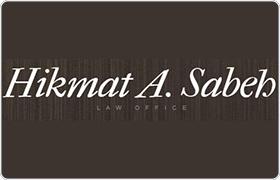 Elmwood Park Eminent Domain Lawyers, New Jersey
Elmwood Park Eminent Domain Lawyers, New Jersey
Sponsored Law Firm
-
 x
x

Click For More Info:
-
Law Office of Hikmat A. Sabeh
26 Park Street Suite 2076 Montclair, NJ 07042» view mapReal Estate Law Effective Legal Advice
We guarantee effective and aggressive representation. Our reputation and history of successful litigation speaks for itself.
800-881-0241
Lawyers
1-2 of 2 matches
Eminent Domain, Franchising, Business Organization, Banking & Finance
Election & Political, Business Organization, Eminent Domain, Construction



 Hikmat A. Sabeh Montclair, NJ
Hikmat A. Sabeh Montclair, NJ Practice AreasExpertise
Practice AreasExpertise